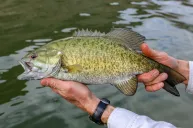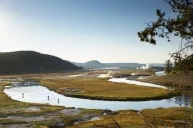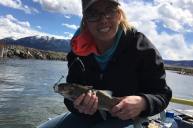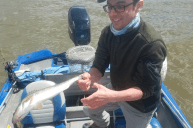I'm actually planning a trip to Yellowstone in a couple of weeks. But it sounds like I will need to leave the fishing pole at home. Yellowstone and the state of Montana recently implemented fishing restrictions on 13 rivers.
It's all thanks to high temperatures after an underwhelming snowpack. With a record heat wave in the state, officials are concerned about the fish population. So they don't want to make a bad situation worse with overfishing, according to Montana Free Press. It's not a total loss as fishing will still be allowed, just limited in Montana. I'll get to Yellowstone in a second. According to hoot owl restrictions, you won't be able to fish after 2 p.m. The restrictions target whole rivers such as Big Hole and Bitterroot. Others are just closed at specific sections.
Pat Saffel, Region 2 fisheries manager for FWP, said the lack of a larger snowpack played a role. "Now we're paying the price of not having the snow," he said. He's worried about the Blackfoot River, which typically doesn't have these restrictions. It's flowing at just a third of its typical rate.
Fishing At Yellowstone
Missoula-based National Weather Service meteorologist Jeff Kitsmiller said conditions are unlikely to improve any time soon. It's thanks to above-average temperatures and below-average rainfall.
"This is definitely going to continue to [cause] problems with warming water and low streamflows," Kitsmiller said. Meanwhile, Yellowstone has closed three of its rivers — the Madison, Firehole and Gibbon — for fishing for the foreseeable future. It may also close other rivers in the park
Michael Downey, drought program coordinator with the Department of Natural Resources and Conservation, said they're bracing for a severe drought. "We're seeing these much longer periods between big storms. Then we'll get big storms, and it will be dry, dry, dry," Downey said. "I do think that will have ramifications for what [crops] we're going to grow and, ultimately, what our landscape looks like."
Former Fish and Wildlife Commissioner Pat Byorth is concerned about the state's trout population.
"During stressful times, [fish] could seek out nooks and crannies of groundwater upwelling to help them get through that period, [but] as the hot time goes on longer, it's harder for them to eke out a survival," Byorth said. "It used to just be a week or two, and they'd adapt. They'd find refuge in tributary streams or move up to cooler water."
"They may survive, but even if they survive, they go into winter, the other really hard season for them, in much poorer shape," Byorth said.




